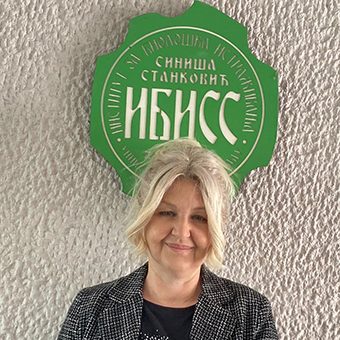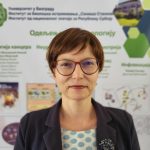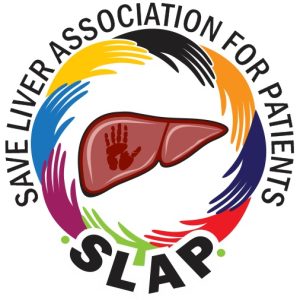Project Summary
Metabolic dysfunction-associated liver steatosis disease (MASLD), encompassing steatosis (MASL), metabolic dysfunction-associated steatohepatitis (MASH), fibrosis, cirrhosis and end-stage hepatocellular carcinoma, has become the most common liver disease in the Western world in recent decades. Together with the rest of the Balkan Peninsula, Serbia is even more affected by the problem of MASLD and metabolic diseases than Europe as a whole. So far, Serbia has not participated in the European initiatives and the MASLD registry and lags behind the leading scientific institutions in the EU in metabolic diseases research, so innovative approaches from research centers and the healthcare system are urgently needed.
In order to create the framework for future scientific collaboration and joint multidisciplinary research that can provide substantial answers to global challenges, Institute for Biological Research “Siniša Stanković” – National Institute of the Republic of Serbia, University of Belgrade (IBISS) will collaborate with leading EU institutions – Örebro University (ORU), Amsterdam University Medical Center (Amsterdam UMC) and Faculty of Pharmacy University of Lisbon (FFUL) within the STRIMHealth project, as well as with industrial partners (OWL Metabolomics) and healthcare institutions (University Clinical Center of Serbia, Euromedik) to conduct high quality research aimed at investigating and identifying the metabolic and regulatory pathways and mechanisms involved in the development and progression of MASLD.
This shall form the foundation for the realization of the pivotal objective of the STRIMHealth project – the establishment of the Metabolic Disease Research Unit and Bioinformatics Hub to increase scientific excellence and enable Serbia to proactively influence the development of local and EU-funded research in the field of metabolic diseases, in particular MASLD. The improvement of scientific excellence will also be supported by institutional reforms, including the establishment of the Research Management Unit (RMU), which involves the development of robust management and administrative capacities of IBISS, thus increasing its visibility, attractiveness and public reputation.
Objectives
Raising IBISS scientific excellence in metabolic diseases research by establishing an impactful research framework with leading European research institutions
IBISS has a long history as one of the top Serbian institutions in the research of metabolic disorders, primarily relying on basic mechanistic investigations of type 1 and type 2 diabetes, as well as of the roles of various hormones (glucocorticoids, insulin, dihydrotestosterone) in metabolic disorders. However, stepping up from a promising to the forefront position in the field of translational metabolic diseases, requires the complementary expertise transfer and the best practice exchange between IBISS and the internationally leading institutions, in order to enhance IBISS research and human capacity. This will result from the creation of a sustainable scientific strategy and joint research agenda with the Örebro University (ORU), Amsterdam University Medical center (AmsterdamUMC) and Faculty of Pharmacy, University of Lisbon (FFUL), as well as from the development of new research avenues based on multi-omics approach and systems biology, with the establishment of IBISS Center of excellence – MDRU and the Bioinformatics Hub, as the key outcome.
Strengthening the IBISS capacity in the metabolic diseases research through joint translational research projects
Although IBISS is nationally very well positioned in the field of metabolic research, the underdeveloped translational research in this field, including the insufficient clinical utilization and exploitation of scientific results in the development of effective treatments and identifying potential biomarkers, represents a serious disadvantage in IBISS quest towards scientific excellence. The transfer of knowledge and expertise from the partner institutions (ORU, AmsterdamUMC, FFUL) will support the progress of IBISS towards translational studies, increase scientific and innovative capacity of IBISS staff and improve skills and the mobility of PhD students and early stage researchers. This will be achieved through short-term scientific missions to EU-partnering institutions; joint research projects aimed at discovering novel therapeutic strategies for MASLD; dissemination and exploitation of scientific results generated in the joint projects (high-impact publications, patenting of novel microbiota-based therapy and licensing to interested biopharma companies).
Ensuring the sustainability and growth of IBISS by improving the research management and administration skills, together with the enhancement of the IBISS innovative potential
The currently obvious need to expand the capacity of IBISS beyond the traditional focus on basic research will be addressed in the STRIMHealth project, by developing robust management, entrepreneurship and administrative capacity of IBISS staff. Namely, the training in EU-based research funding and project management, data management and open science will be organized to increase the skills of the Research Management Working Group by turning it into a more competent unit (RMU). The transfer of best practice from our EU partners in technology transfer and intellectual property protection will ensure the excellence of the Knowledge and Technology Transfer (KTT) team. Special emphasis will be placed on stimulating the academic skills and innovation potential of PhD students and early stage researchers through training in translational science, academic entrepreneurship, open innovation and communication. The acquired skills in project results exploitation, utilization and commercialization will be developed through academia-industrial partnerships. Thus, the capability of IBISS staff to compete for funding as well as to generate useful intellectual property that can support long-term sustainability of IBISS will be refined and ameliorated.
Presenting the scientific excellence of IBISS as the main driving force for sustainable networking, visibility and impacts at national, regional and EU levels
The extensive experience of IBISS staff in scientific result dissemination is in need of strategic leveraging to achieve improvements across broader audiences. To present IBISS scientific excellence and widen the dissemination of project results from academia to other stakeholders, workshops, schools and info/open days will be organized, apart from the implicit high-impact publications, and participation in the international conferences. Communication with the non-academic public will also be achieved through media and press releases, project website, promotional materials, social media, and participation in popular science events. Metabolic diseases are partly attributable to the unhealthy lifestyle, so special attention will be placed on raising awareness about metabolically risky lifestyles among schoolchildren and the general population. Industrial stakeholders will be approached through specialized fairs, customized meetings with industrial partners and brokerage events. All this will increase the visibility of IBISS as a promising partner for nationwide, regional and EU level collaborations, and promote the Institute as an advantageous partner for attracting the R&I funding. Special attention will be placed on networking beyond the Twinning project itself and participation in the ongoing EU projects, as well as by the constant communication with the industry, SMEs and healthcare professionals.
Consortium
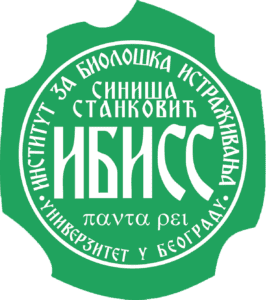
Institute for Biological Research "Siniša Stanković" - National Institute of the Republic of Serbia, University of Belgrade (IBISS)
The largest (14 departments and 5 supporting units) life sciences research institution in Serbia…
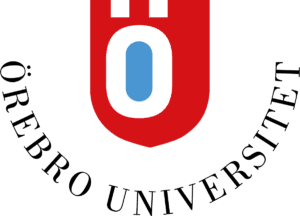
Örebro University (ORU)
One of Sweden’s most expanding universities with 15,000 students, 470 doctoral students and 1,600 employees, ranking top in terms of citations per paper (93th position according to THE list, 2023). …
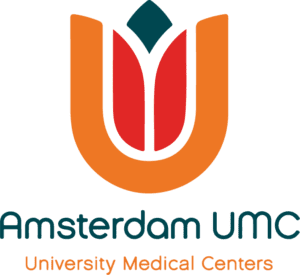
Amsterdam University Medical Center (Amsterdam UMC)
The largest academic hospital in the Netherlands and represents the medical faculties of the University of Amsterdam and the Vrije Universiteit Amsterdam. …
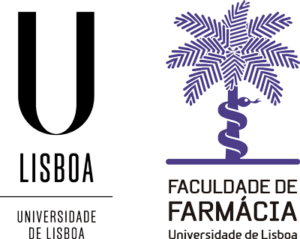
Faculty of Pharmacy University of Lisboa (FFUL)
The University of Lisboa is the largest university in Portugal with more than 52,000 undergraduate and 4,848 doctoral students in 18 faculties and 4,000 academic staff, …
Project Management Board

Nataša Veličković, PhD
Project coordinator

Professor Matej Orešič
Leading partner from Örebro University

Professor Max Nieuwdorp
Leading partner from Amsterdam University Medical Center

Professor Cecília Rodrigues
Leading partner from University of Lisbon
Work Packages
The concept of the STRIMHealth project is based on building on strengths, addressing weaknesses, capitalizing on opportunities and protecting against threats for the IBISS team and reducing gaps between IBISS and EU-counterparts in the project. The coordination and support activities to achieve our objectives are divided into 7 intertwined work packages so that the results of one work package contribute to the successful completion of the others.
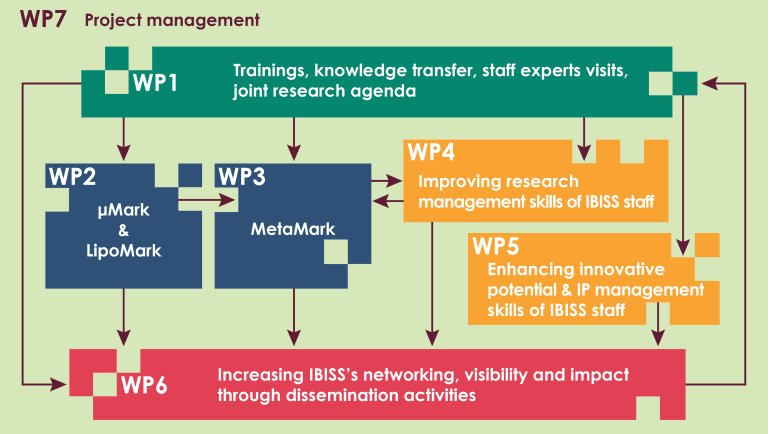
Work Package 1
WP leader: Danijela Vojnović Milutinović (IBISS)
Raising IBISS scientific excellence in metabolic disease research by establishing an impactful research framework
Work Package 2
WP leader:Matej Orešič (ORU)
Strengthening IBISS’s research capacity and creativity through forefront collaborative research projects
Work Package 3
WP leader:Cecília Rodrigues (FFUL)
Tracing the pathway towards translational research in metabolic diseases
Work Package 4
WP leader: Matej Orešič (ORU)
Improving research management and administration skills of IBISS staff and Research Management Working Group
Work Package 5
WP leader: Max Nieuwdorp (Amsterdam UMC)
Enhancing innovative potential of IBISS
Work Package 6
WP leader: Ana Djordjevic (IBISS)
Increasing IBISS`s sustainable networking, visibility and impact on national, regional and EU level
Work Package 7
WP leader: Nataša Veličković (IBISS)
Increasing IBISS`s sustainable networking, visibility and impact on national, regional and EU level
Key People
Project Coordinator
Department of Biochemistry, Institute for Biological Research “Siniša Stanković” – National Institute of the Republic of Serbia, University of Belgrade
Leader of Work Packages 2 and 4
School of Medical Sciences, Örebro University
Turku Bioscience Centre, University of Turku
Leader of Work Package 3
Research Institute for Medicines, Faculty of Pharmacy, University of Lisbon
Leader of Work Package 1
Department of Biochemistry, Institute for Biological Research “Siniša Stanković” – National Institute of the Republic of Serbia, University of Belgrade
Leader of Work Package 6
Department of Biochemistry, Institute for Biological Research “Siniša Stanković” – National Institute of the Republic of Serbia, University of Belgrade
Project Coordinator
School of Science and Technology, Örebro University, Örebro, Sweden
Department of Molecular Biology, Institute for Biological Research “Siniša Stanković”, National Institute of the Republic of Serbia, University of Belgrade
Department of Immunology, Institute for Biological Research “Siniša Stanković”, National Institute of the Republic of Serbia, University of Belgrade
Department of Plant Physiology, Institute for Biological Research “Siniša Stanković”, National Institute of the Republic of Serbia, University of Belgrade
Scientific Advisory Board
The Scientific Advisory Board, composed of internationally recognised experts on MASLD, will play an important role in networking and knowledge transfer within the STRIMHealth project. They will advise on the scientific aspects of the joint research agenda and the strategic research directions and promote the implementation and feasibility of the project.
Members of the STRIMHealth Scientific Advisory Board are:
- Prof. Jeremy Tomlinson, Oxford Centre for Diabetes, Endocrinology and Metabolism, University of Oxford, UK
- Prof. Frank Tacke, Charité University Medicine Berlin, Germany
- Prof. Elisabetta Bugianesi, Department of Medical Sciences, University of Torino, Italy
- Prof. Virginia Hernández-Gea, Hospital Clinic Barcelona-IDIBAPS, Spain
- Cristina Alonso, PhD, Services Manager, OWL Metabolomics







